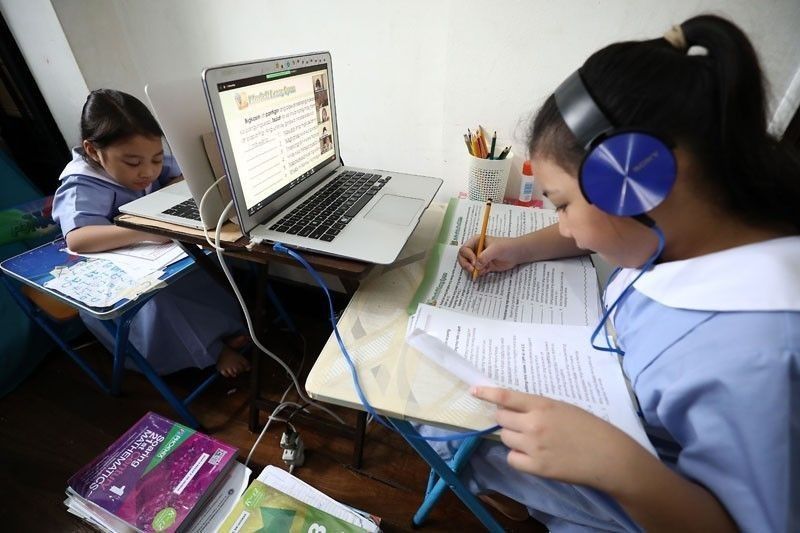Saving private education

It can take a bit of time to pass legislation in the Philippines. Some bills, especially controversial or highly politicized ones, get deliberated for over a decade before they are passed into law. Many more are re-filed every Congress hoping that they’ll one day be taken up.
But this isn’t always the case. For instance, in December 2021, a few months after they were filed, House Bill 9913 and Senate bill 2407 were signed into law as Republic Act 11635 or “An Act Clarifying the Income Taxation of Proprietary Educational Institutions, Amending for the Purpose Section 27 (B) of the National Internal Revenue Code of 1997, As Amended.”
It’s a good thing the law was passed as fast as it was since the law provides reprieve to the country’s private schools, a vital sector that found itself in between a rock and a hard place — wedged between the incapacitating impact of the pandemic and a harsh Bureau of Internal Revenue (BIR) tax regulation that threatened to cripple it even further.
COVID-19 had a devastating impact on many industries, and the education sector was among those worst hit. In addition to the challenge of pivoting to the remote learning setup, private schools also saw enrollment drop sharply, likely due to millions of Filipino families coming to grips with the economic impact of the pandemic.
Based on a survey run by the Philippine Association of Colleges and Universities (PACU) in April 2021, 50% of its institutions saw enrollment drop in 2021 by 10 to 50% compared to the year before.
Adding to the challenges brought about by the pandemic, private schools faced another that came in the form of BIR RR 5-2021. If enforced, the tax regulation would have increased the income tax rate of private schools by a whopping 150%.
When so many private schools are fighting to keep their classroom doors open, the unnecessary and counterintuitive tax hike would have indeed been the final nail in the coffin for many of these struggling education institutions.
During a recent event celebrating the passage of the law, Speaker of the House Lord Allan Velasco said that the BIR wantonly imposed the 150% increase and that “the House of Representatives could not just stand idly by, as a government agency seemed hellbent to put the final nail in the education coffin by increasing the tax rate.”
“Taxes should nurture growth, not kill the future of our country,” he added.
Indeed, had a law not been passed to stop the increase, the BIR regulation could have had far-reaching effects. The most apparent effect would have been the loss of jobs for both teachers and other employees of these private schools that would be forced to scale back operations or close due to the increased tax rate.
If the increase had not been stopped, tuition fees might have also gone up, which would have put an additional burden on parents’ shoulders. As a parent myself, I know that paying for your kid’s tuition fee can take a toll on a household’s finances. With so many families now facing economic hardship due to the pandemic, any increase in tuition fees would undoubtedly have been felt.
More than any group, though, perhaps the most worrisome impact the BIR’s misguided policy could have had would be on the students. According to the World Bank, “evidence is emerging to show that school closures have resulted in actual learning loss – a ‘COVID slide.’”
COVID slide refers to learning loss or the reversals in academic progress brought about by pandemic-induced disruptions to the educational system. Now imagine areas where private schools are geographically the only option, students there would have no choice but to stop schooling if their private school had to close.
Thankfully, legislators had strong support to stop this increase, and legislation that eventually became RA 11635 was pushed through Congress. In fact, through the efforts of primary authors Cong. Joey Salceda and Sen. Juan Edgardo Angara, the law stopped the increase and granted a preferential tax rate of 1% for proprietary education intuitions beginning July 1, 2020, until June 30, 2023.
The speedy passage of the measure through Congress was also due to a very active group of stakeholders that were very vocal and worked with policymakers on the measure. During the thanksgiving event, Sen. Risa Hontiveros thanked the stakeholders of the education sector for clearly explaining to legislators the unique difficulties that schools were experiencing on the ground.
“It is this kind of collaboration among private organizations, individuals, and government institutions that keeps our democracy alive,” the senator added.
Granted, this passage of RA 11635 is by no means the silver bullet to all the challenges faced by private schools during this pandemic, nor to the growing fears of learning loss among Filipino students.
However, according to Dr. Anthony Jose M. Tamayo, chairman of the Coordinating Council of Private Educational Associations of the Philippines (COCOPEA), the law still provides a lifeline for struggling schools and the economic ecosystems built around them, adding that the law was a “game-changer” for the education sector.
It can take a bit of time to pass legislation in the Philippines. But what RA 11635 demonstrates is that some issues, like saving the private education sector, are non-partisan. It shows that legislators, stakeholders and advocacy groups can effectively and efficiently collaborate to rally behind a common cause. And what better cause than education.
Paco Pangalangan is the executive director of think tank Stratbase ADR Institute.
- Latest




























